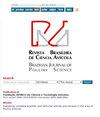酒店管理课程评估:课程改进的基础
IF 1.1
4区 农林科学
Q3 AGRICULTURE, DAIRY & ANIMAL SCIENCE
引用次数: 0
摘要
酒店管理在学术学习和实践技能方面的全球标准是非常激烈的行业竞争。根据CTU-Main HM收集的个人KSA(知识、技能和态度)评估,实习生的表现水平。然而,实习生的实习表现取决于个人的KSA。采用定量方法编制问卷并分发,以评估实习生的个人因素如何有助于根据结果确定课程的改进。在学生评估的基础上,对实习项目的有效设计和知情管理进行深入了解,这些基本见解对于衡量实习项目和未来酒店管理专业人员的整个专业指导项目的成果是非常宝贵的。它提供了对课程作业、活动和建议的课程改革的观点。由于实习是项目的一部分,因此整合项目和实习评估是合适的。它试图通过考察酒店管理专业学生实习前的能力和实习结束后实习经验所需的技能提高,来探讨他们在KSA和个性方面的学习成绩和实习表现。它揭示了影响个体因素的相互作用在塑造学生对实习的期望中是必不可少的。个体因素和组织因素是实习生体验的影响因素,调节实习生体验的环境转变的培训因素和实习生特征是实习生体验的中介因素。本文章由计算机程序翻译,如有差异,请以英文原文为准。
Hospitality management program evaluations: Bases for curriculum enhancement
Global standards in Hospitality Management in terms of academic learning and practical skills are very stiff competition in the industry. Interns' level of performance due to the individual KSA (Knowledge, Skill, and Attitude) evaluation CTU-Main HM collected. However, the internship performance of the Trainee depends individually in terms of KSA. A quantitative method structured questionnaire and distributed to evaluate how the individual factors of interns that would help determine the curriculum enhancement based on the results. Essential insights that advance understanding of the efficient design and informed management of internship programs based on evaluations among students can be invaluable in measuring outcomes from the internship program and the entire professional instruction program for future Hospitality Management professionals. It provides perspectives on coursework, activities, and suggested curriculum changes. Integrating program and internship assessment is appropriate since internships are part of the program. It attempted to explore the academic performance and internship performance in terms of KSA and personality of hospitality management students by examining their capacity before the internship and their skills enhancement needed for the internship experience following its completion. It reveals that an interaction that influence the individual factors is essential in shaping student expectations of the internship. Individual and organizational factors regarded as influencers on interns' experience, training factors about the transition of environment that regulate interns' experience and characteristics serve as mediators to the internship experience.
求助全文
通过发布文献求助,成功后即可免费获取论文全文。
去求助
来源期刊

Brazilian Journal of Poultry Science
农林科学-奶制品与动物科学
CiteScore
1.80
自引率
9.10%
发文量
60
审稿时长
>12 weeks
期刊介绍:
A Revista Brasileira de Ciência Avícola surgiu em 1999 a partir da necessidade que a comunidade científica possuía de um periódico para veiculação e publicação de seus trabalhos, com a publicação de três números anuais.
A Revista conta hoje com um corpo editorial altamente qualificado e com artigos científicos desenvolvidos pelos maiores especialistas da área, o que a cada dia atrai mais leitores em busca de inovação e respaldo técnico.
Devido à credibilidade que conquistou pelos esforços de sus autores, relatores e revisores, a Revista ganhou caráter de coleção, sendo consultada como fonte segura de estudo desenvolvidos na Avicultura.
A partir de 2003 – volume 5 -, a Revista passou a chamar-se Brazilian Journal of Poultry Science, e todos os trabalhos passaram a ser publicados em inglês. No mesmo ano subiu para quatro o número de revistas por volume, ampliando-se assim os trabalhos publicados anualmente.
 求助内容:
求助内容: 应助结果提醒方式:
应助结果提醒方式:


